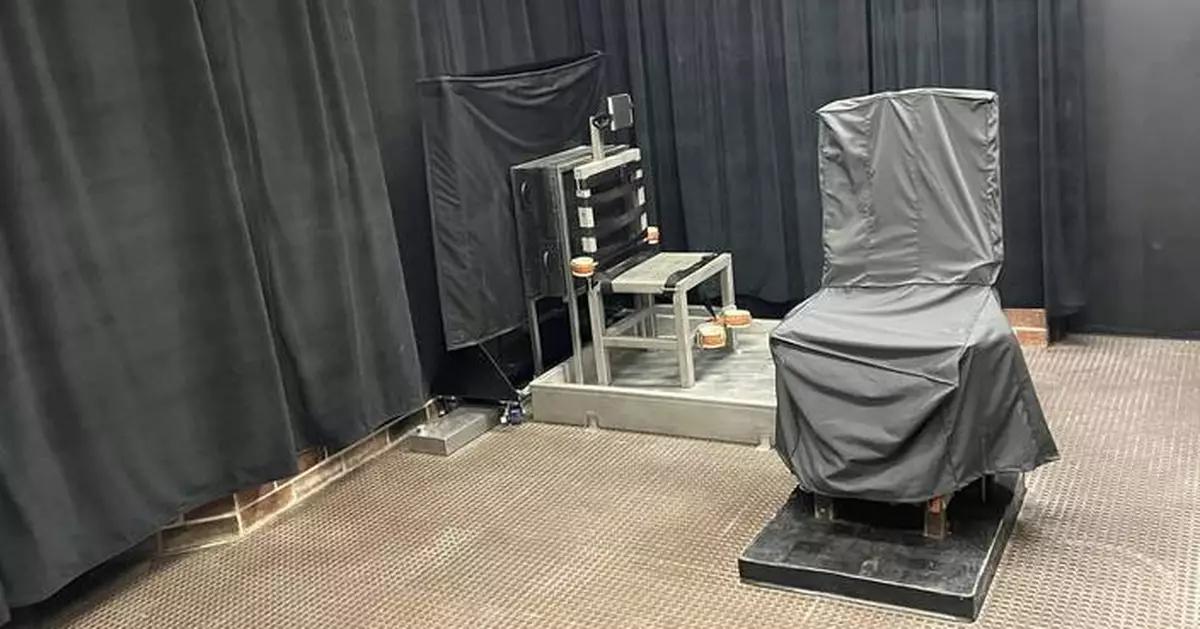COLUMBIA, S.C. (AP) — A South Carolina death row inmate on Friday chose execution by firing squad, just five weeks after the state carried out its first death by bullets.
Mikal Mahdi, who pleaded guilty to murder for killing a police officer in 2004, is scheduled to be executed April 11.
Mahdi, 41, had the choice of dying by firing squad, lethal injection or the electric chair. He will be the first inmate to be executed in the state since Brad Sigmon chose to be shot to death on March 7. A doctor pronounced Sigmon dead less than three minutes after three bullets tore into his heart.
“Faced with barbaric and inhumane choices, Mikal Mahdi has chosen the lesser of three evils," one of his lawyers, David Weiss, said in a statement. "Mikal chose the firing squad instead of being burned and mutilated in the electric chair, or suffering a lingering death on the lethal injection gurney.”
Mahdi ambushed Orangeburg public safety officer James Myers at the officer's shed in Calhoun County in July 2004. Myers had just returned from an out-of-town birthday celebration for his wife, sister and daughter, prosecutors said.
Myers’ wife found his burned body, shot at least eight times including twice in the head, in the shed that had been the backdrop for their wedding less than 15 months earlier, authorities said.
Mahdi will be strapped to a chair 15 feet (4.6 meters) from three prison employees who volunteered to be on the firing squad. A target will be placed on his chest. Their rifles will all be loaded with a live round that shatters when it hits his rib cage.
Aside from Sigmon, only three other U.S. inmates — all in Utah — have been killed by a firing squad in the past 50 years. Sigmon was the first inmate killed by bullets in the U.S. since 2010.
Mahdi’s lawyers have filed a final appeal with the state’s highest court, saying Mahdi’s case for a life sentence at his original trial took only 30 minutes and that his lawyers failed to call anyone who could testify on his behalf.
It “didn’t even span the length of a Law & Order episode, and was just as superficial,” they said.
Several defense lawyer organizations have filed briefs saying no one should be executed after such little effort to defend them.
Mahdi’s lawyers said that as a juvenile Mahdi spent months in isolation in prison and that this altered his developing brain and affected his judgement.
After Mahdi pleaded guilty to murder, Judge Clifton Newman said he sentenced the young man to death because a sense of humanity he tried to find in every defendant seemed not to exist in Mahdi.
Prosecutors responded to the claim of a poor defense by saying Mahdi was able to present much more evidence during a 2011 appeal that had to be heard inside a prison because Mahdi had stabbed a death row guard during in an escape attempt. A judge rejected the appeal.
“In Mahdi’s vernacular, if his mitigation presentation before Judge Newman ‘didn’t even span the length of a Law & Order episode,’ the review of any potential error is in its 24th season,” the state Attorney General’s Office wrote in court papers.
Prosecutors said a lot of the new evidence would help Mahdi's case, including a string of attacks and threats on prison employees; his guilty plea to killing a convenience store clerk in Winston-Salem, North Carolina, before the South Carolina killing; and two other deaths that authorities in Virginia think he may be connected to.
“The nature of the man is violence,” prosecutors wrote.
Mahdi has one more opportunity to live — he can ask Republican Gov. Henry McMaster to reduce his sentence to life in prison without parole just minutes before his scheduled execution at 6 p.m. on April 11 at the Broad River Correctional Institution in Columbia.
But no South Carolina governor has offered clemency in the 47 executions in the state since the death penalty resumed in the U.S. in 1976.
In the past seven months, South Carolina has executed Freddie Owens on Sept. 20; Richard Moore on Nov. 1; Marion Bowman Jr. on Jan. 31; and Sigmon.
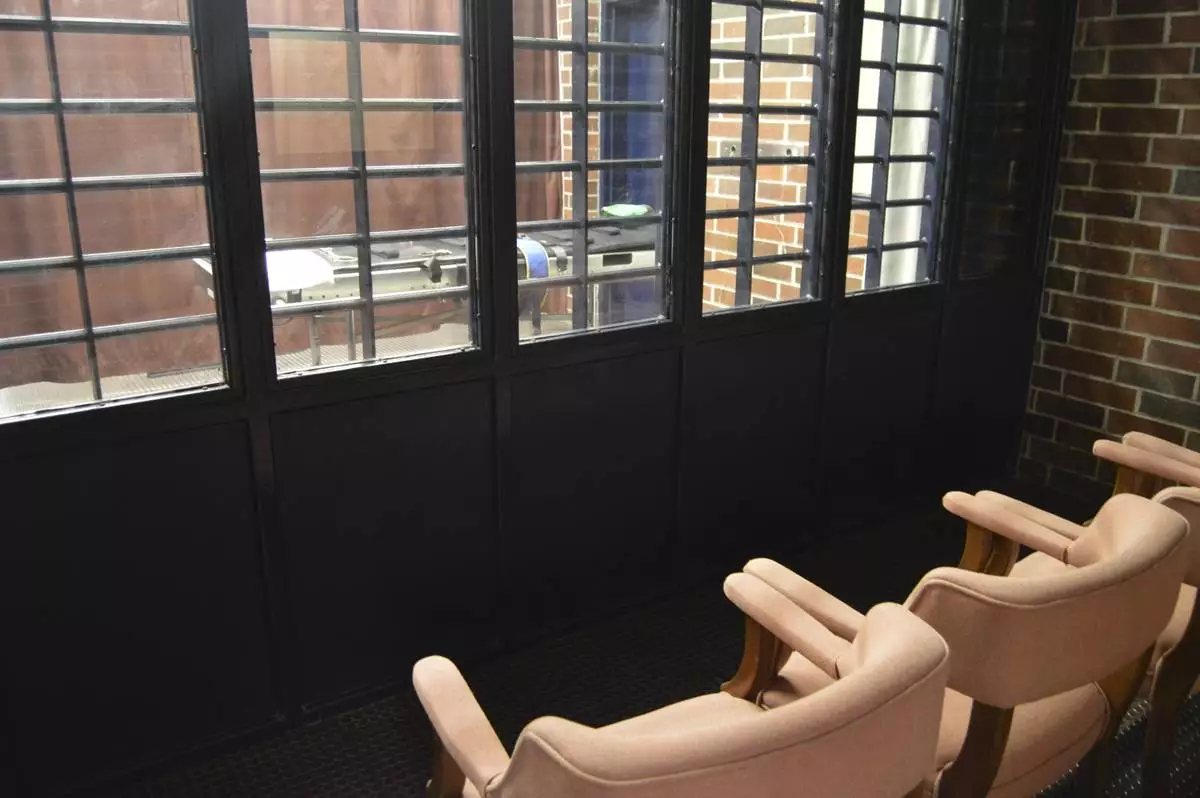
FILE - This undated photo provided by the South Carolina Department of Corrections shows the witness room in the execution chamber at the Broad River Correctional Institution in Columbia, S.C. (South Carolina Department of Corrections via AP, File)
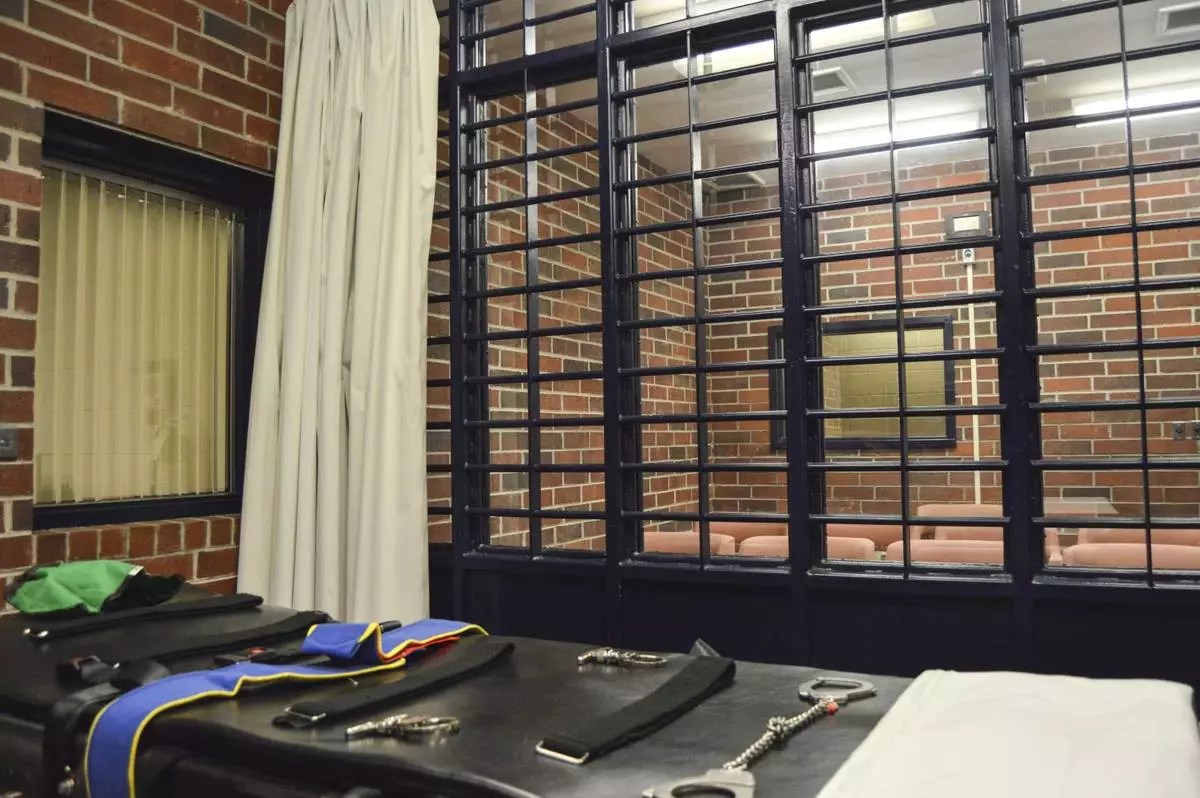
FILE - This undated photo provided by the South Carolina Department of Corrections shows the execution room at the Broad River Correctional Institution in Columbia, S.C. (South Carolina Department of Corrections via AP, File)
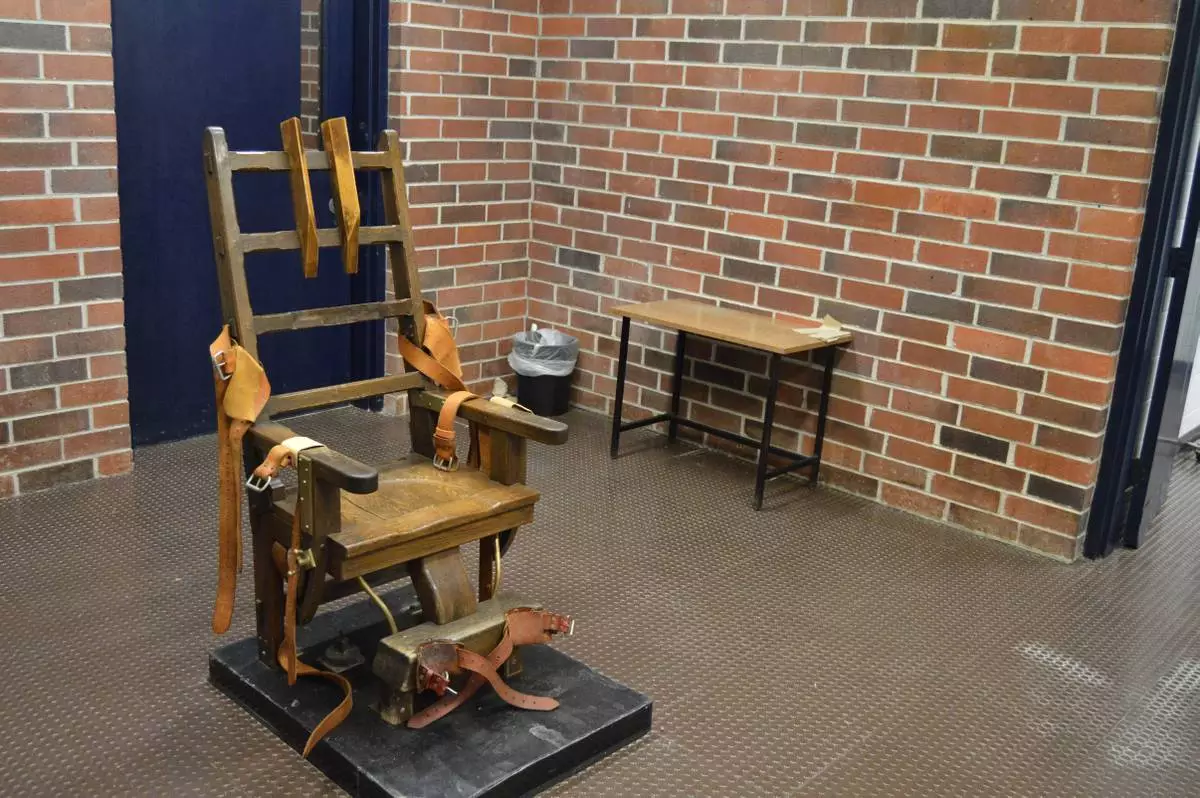
FILE. This March 2019 photo provided by the South Carolina Department of Corrections shows the state's electric chair in Columbia, S.C. (Kinard Lisbon/South Carolina Department of Corrections via AP, File)
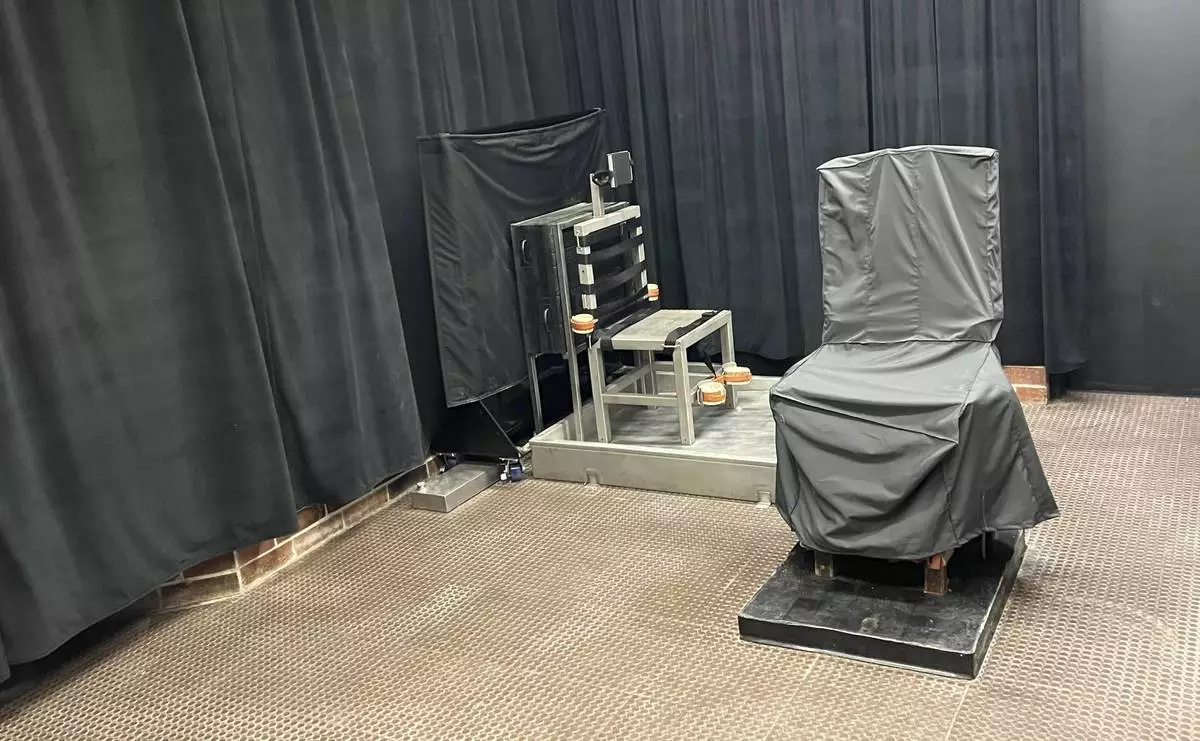
FILE - This photo provided by the South Carolina Department of Corrections shows the state's death chamber in Columbia, S.C., including the electric chair, right, and a firing squad chair, left. The South Carolina Supreme Court will hear arguments Tuesday, Feb. 6, 2024, on whether the state can use the electric chair, firing squad or a new lethal injection protocol to carry out its first executions in nearly 13 years. (South Carolina Department of Corrections via AP, File)
WASHINGTON (AP) — New Jersey Democratic Sen. Cory Booker held the Senate floor with a marathon speech that lasted all night and into Tuesday afternoon in a feat of endurance to show Democrats’ objections to President Donald Trump’s sweeping actions.
Booker took to the Senate floor on Monday evening saying he would remain there as long as he was “physically able.” More than 19 hours later, the 55-year-old senator, a former football tight end, was plainly exhausted but still going. It was a remarkable show of stamina — among the longest in Senate history — as Democrats try to show their frustrated supporters that they are doing everything possible to contest Trump's agenda.
“These are not normal times in our nation," Booker said as he launched into his speech. “And they should not be treated as such in the United States Senate. The threats to the American people and American democracy are grave and urgent, and we all must do more to stand against them.”
Pacing, then at times leaning on his podium, Booker railed for hours against cuts to Social Security offices led by Trump adviser Elon Musk’s Department of Government Efficiency. He listed the impacts of Trump's early orders and spoke to concerns that broader cuts to the social safety net could be coming, though Republican lawmakers say the program won't be touched.
Booker also read what he said were letters from constituents, donning and doffing his reading glasses. One writer was alarmed by the Republican president's talk of annexing Greenland and Canada and a “looming constitutional crisis.”
“I hear you. I see you, and I’m standing here in part because of letters like yours,” Booker said.
As his speech rolled into Tuesday afternoon, Booker got help from Democratic colleagues, who gave him a break from speaking to ask him a question and praise his performance. Booker yielded for questions but made sure to say he would not give up the floor. He stayed standing to comply with Senate rules.
“Your strength, your fortitude, your clarity has just been nothing short of amazing and all of America is paying attention to what you’re saying,” Senate Democratic Leader Chuck Schumer said as he asked Booker a question on the Senate floor. “All of America needs to know there’s so many problems, the disastrous actions of this administration.”
As Booker stood for hour after hour, he appeared to have nothing more than a couple glasses of water to sustain him.
“I shall not complain,” Booker said with a laugh after one colleague asked how he was doing Tuesday afternoon.
Democratic aides watched from the chamber's gallery, and Sen. Chris Murphy accompanied Booker throughout his speech. Murphy was returning the comradeship that Booker had given to him in 2016 when the Connecticut Democrat held the floor for almost 15 hours to argue for gun control legislation.
The record for the longest individual speech belongs to Strom Thurmond of South Carolina, who filibustered for 24 hours and 18 minutes against the Civil Rights Act of 1957, according to the Senate's records. As it rolled past 19 hours, Booker's speech marked the fifth longest in Senate history.
Only one other sitting senator has spoken for longer. In 2013, Sen. Ted Cruz, a Republican of Texas, held the floor for 21 hours and 19 minutes to contest the Affordable Care Act.
Booker repeatedly invoked the civil rights leader Rep. John Lewis of Georgia on Tuesday, arguing that overcoming opponents like Thurmond would require more than just talking.
“You think we got civil rights one day because Strom Thurmond — after filibustering for 24 hours — you think we got civil rights because he came to the floor one day and said, ‘I’ve seen the light,’” Booker said. ”No, we got civil rights because people marched for it, sweat for it and John Lewis bled for it."
Booker's speech was not a filibuster, which is a speech meant to halt the advance of a specific piece of legislation. Instead, Booker's performance was a broader critique of Trump's agenda, meant to hold up the Senate's business and draw attention to what Democrats are doing to contest the president. Without a majority in either congressional chamber, Democrats have been almost completely locked out of legislative power but are turning to procedural maneuvers to try to thwart Republicans.
Booker is serving his second term in the Senate. He was an unsuccessful presidential candidate in 2020, when he launched his campaign from the steps of his home in Newark. He dropped out after struggling to gain a foothold in a packed field, falling short of a threshold to meet in a January 2020 debate.
But as Democrats search for a next generation of leadership, frustrated with the old-timers at the top, Booker's speech could cement his status as a leading figure in the party's opposition to Trump.
Even before taking to the national political stage, Booker was considered a rising star in the Democratic Party in New Jersey, serving as mayor of Newark, the state's largest city, from 2006 to 2013.
During college, he played tight end for Stanford University's football team. He became a Rhodes scholar and graduated from Yale Law before starting his career as an attorney for nonprofits.
He was first elected to the U.S. Senate in 2013 during a special election held after the death of incumbent Democrat Frank Lautenberg. He won his first full term in 2014 and reelection in 2020.
Catalini reported from Trenton, N.J.
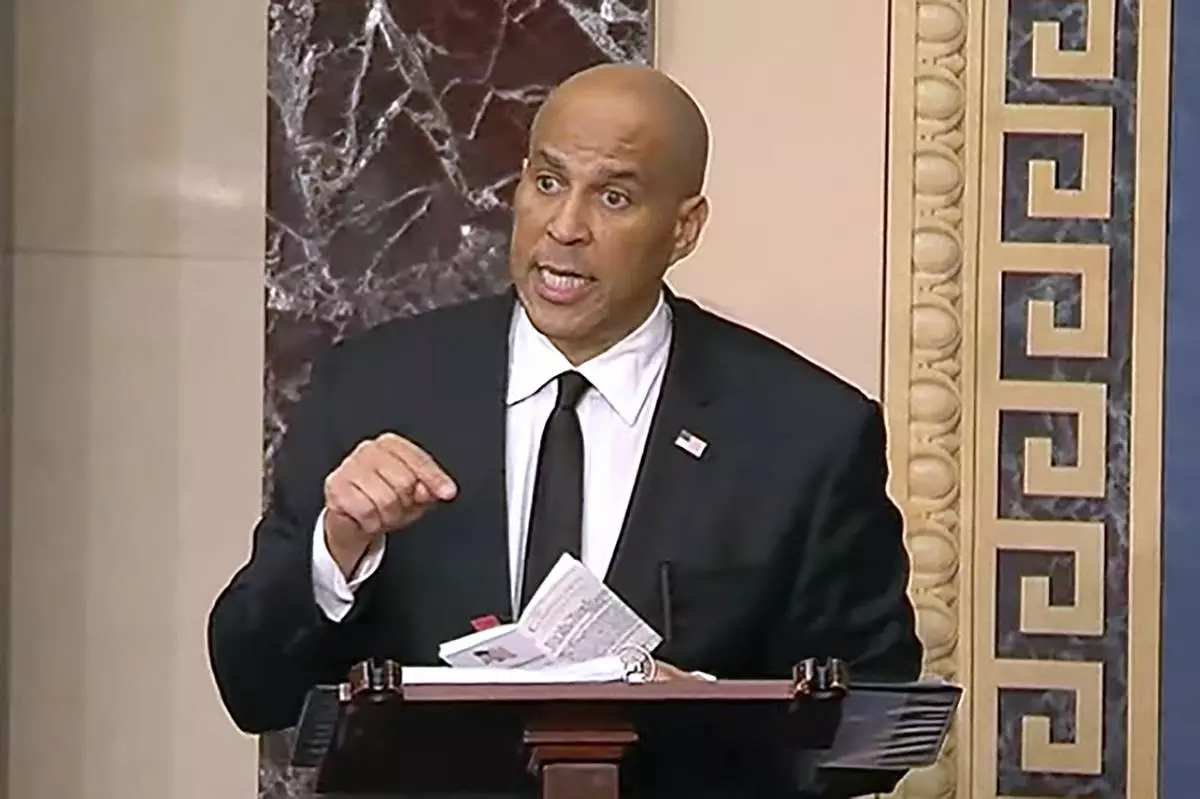
In this image provided by Senate Television, Sen, Cory Booker, D-N.J. speaks on the Senate floor, Tuesday morning, April 1, 2025. (Senate Television via AP)
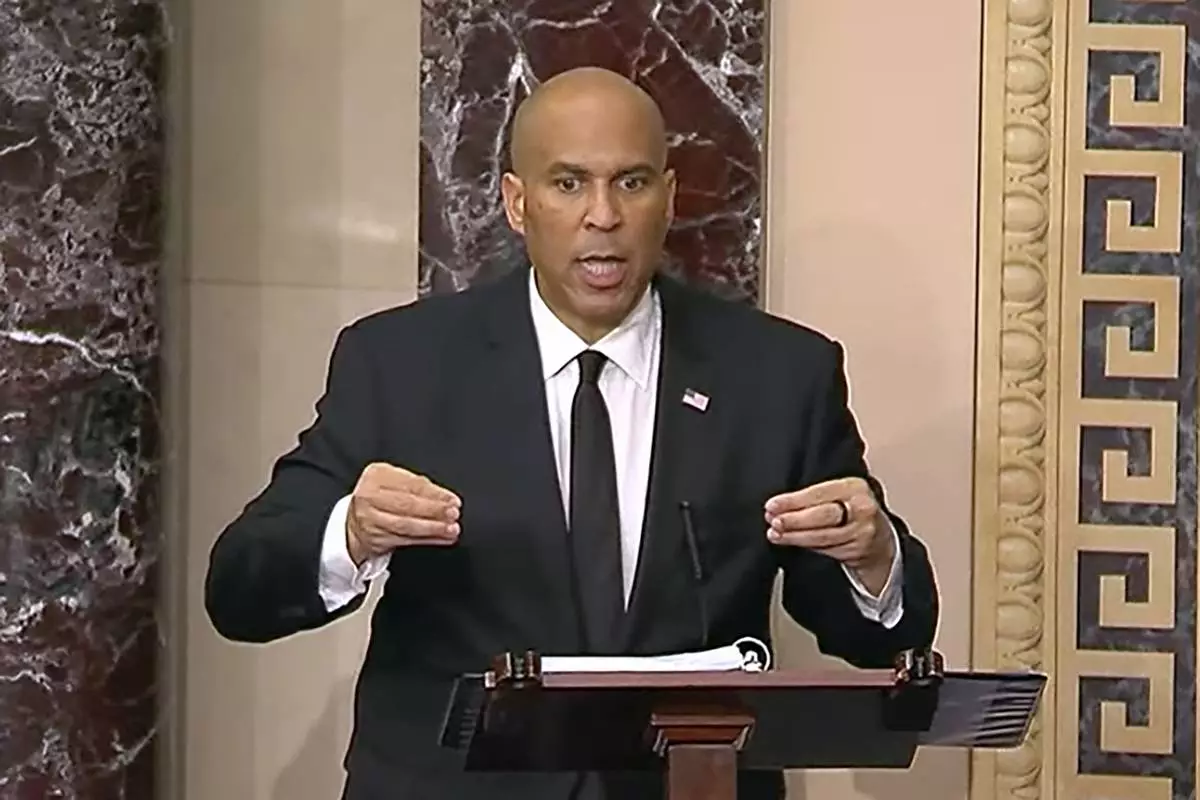
In this image provided by Senate Television, Sen, Cory Booker, D-N.J. speaks on the Senate floor, Tuesday morning, April 1, 2025. (Senate Television via AP)
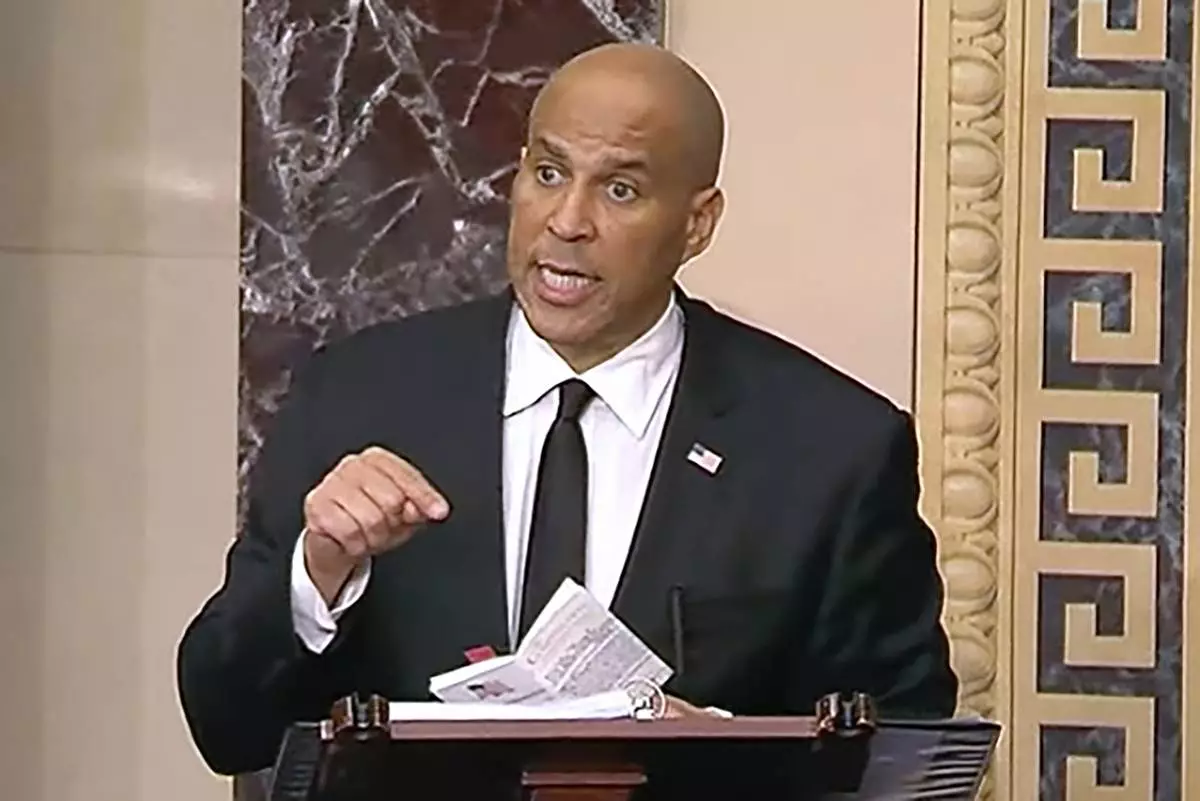
In this image provided by Senate Television, Sen, Cory Booker, D-N.J. speaks on the Senate floor, Tuesday morning, April 1, 2025. (Senate Television via AP)
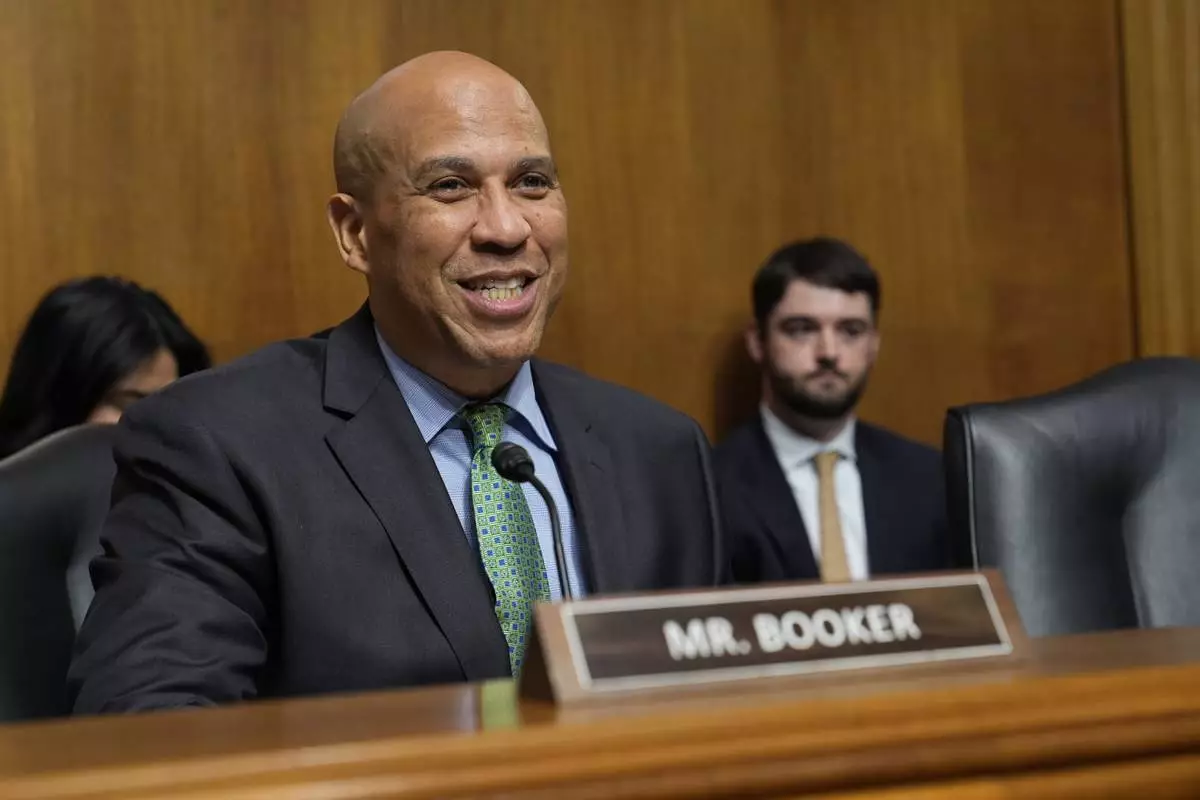
FILE - Sen. Cory Booker, D-N.J., speaks during a hearing on Capitol Hill in Washington, May 21, 2024. (AP Photo/Susan Walsh, File)
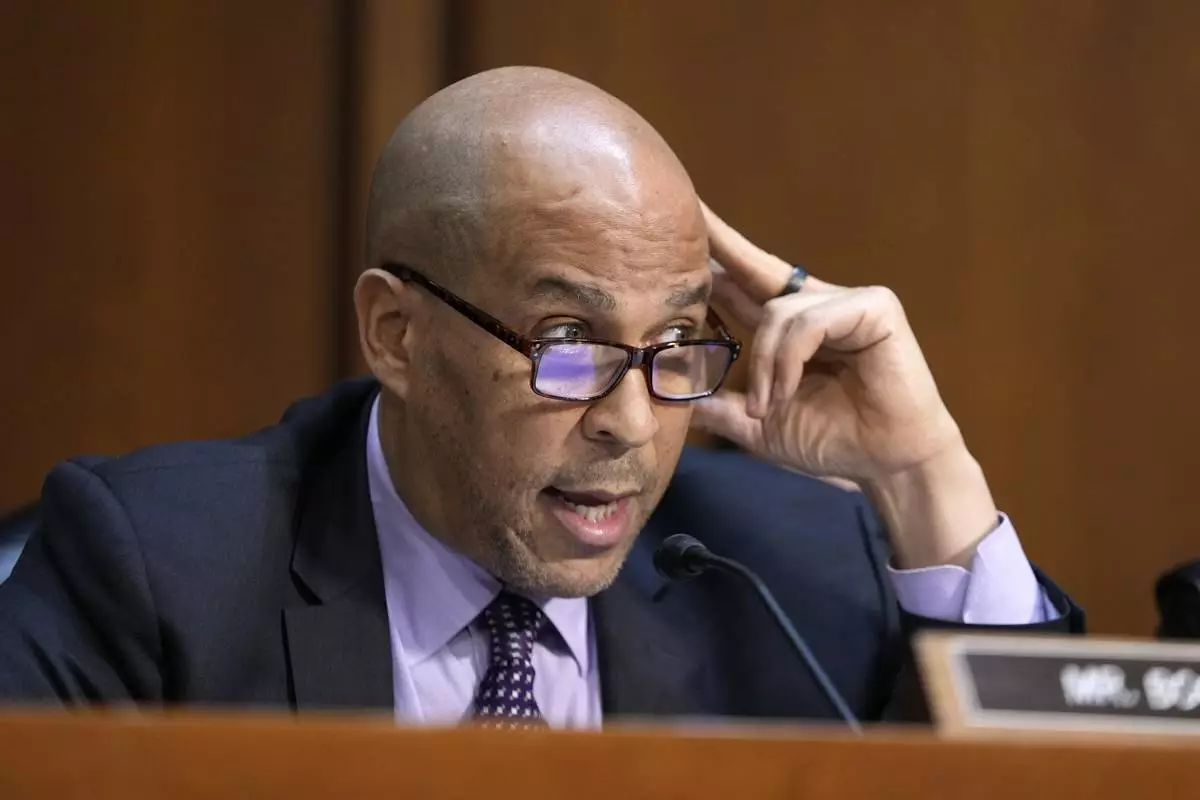
FILE - Sen. Cory Booker, D-N.J.,, speaks during a confirmation hearing before the Senate Judiciary Committee at the Capitol in Washington, Jan. 30, 2025. (AP Photo/Ben Curtis, File)






